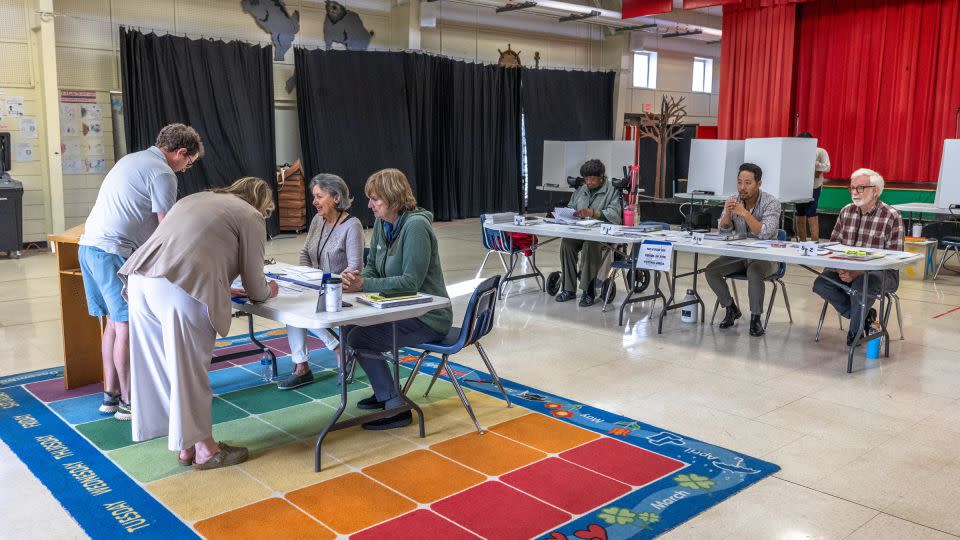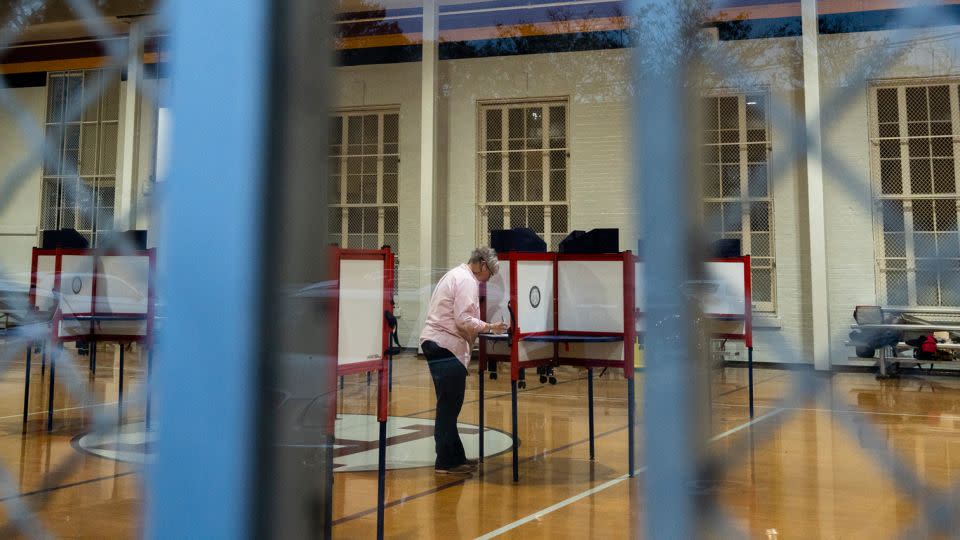In more than half of the states, voting this year will be harder than it was four years ago, new report finds
- Oops!Something went wrong.Please try again later.
Americans in more than half of the states will face voting restrictions this year that weren’t in place four years ago during the last presidential election, a new analysis finds.
Twenty-eight states – ranging from political battlegrounds such as North Carolina to Republican strongholds such as Alabama and Idaho – have enacted laws since 2020 that make it harder to cast a ballot, according to a report released Friday by the liberal-leaning Brennan Center for Justice at New York University’s law school.
“The most aggressive years for restrictive voting legislation in the last decade have come after the 2020 election,” said Sara Carter, a Brennan Center attorney who analyzed legislation across the country for the new report. “These new laws are making voting harder, really, at every stage of the process – from registration to mail voting to strict voter ID.”
One class of new laws seeks to curtail voting by mail – a method that former President Donald Trump and his allies baselessly cast as rife with fraud in the aftermath of his 2020 White House loss – even as top Republican officials now seek to encourage their supporters to vote by mail this year.
Alabama and Idaho, for instance, have enacted laws this year that impose criminal penalties in some cases for assisting with absentee voting, a practice critics have cast as inappropriate “ballot harvesting” by political operatives.
Alabama’s law – signed by Republican Gov. Kay Ivey in March – makes it a crime in most cases to return an absentee ballot application on behalf of another voter. And it’s now a felony for a person to receive payment for distributing or collecting absentee ballot applications.
“Here in Alabama, we are committed to ensuring our elections are free and fair,” Ivey said in a statement when she signed the bill. “Under my watch, there will be no funny business in Alabama elections.”
Opponents of the new law in Alabama, however, have criticized it as a way of curbing the activity of outside groups who assist the elderly and others who cannot vote in person. A coalition of voting and civil rights groups has sued to block the law.
Meanwhile, in North Carolina, a potential presidential battleground this fall, a state law mandates that mail-in ballots must be received by 7:30 p.m. on Election Day to be counted. Lawmakers last year eliminated a three-day grace period for those ballots to arrive at local election offices.

In the 2022 midterms, before the North Carolina law was in place, more than 8,600 absentee ballots that arrived within the grace period were accepted, state records show.
Another trend noted in the report: a wave of bills that seek to regulate deepfakes and material generated by artificial intelligence in elections.
As of May 3, legislation had been introduced in at least 39 states to safeguard against artificial intelligence content, with laws enacted in at least nine that require notices that the message was manipulated, according to the Brennan Center.
The analysis also found that certain states have expanded access to the ballot. At least 11 states have enacted laws this year that the Brennan Center officials say make it easier to vote. Kentucky, for instance, now allows mail ballots to be sent to addresses other than the ones on file at the election offices in some circumstances, making it easier for college students away at school, for example, to cast absentee ballots.

And Nebraska has restored voting rights for ex-felons who have completed the terms of their sentence – including probation – rather than waiting two years, as previously required.
“We are really seeing a stark divide between states that are trying to make it harder to vote and those that are making it easier,” Carter said. Given the changed election law landscape, she added, it’s crucial that people who plan to cast ballots this fall start to familiarize themselves with their state’s voting rules.
For more CNN news and newsletters create an account at CNN.com

